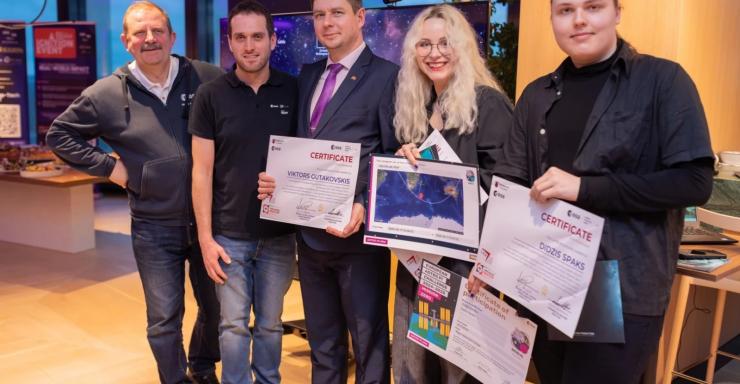Every year on May 16, the International Day of Light is celebrated worldwide — a day dedicated to the importance of scientific exploration of light and its tremendous contribution to modern society. Initiated by UNESCO, the International Day of Light encourages the strengthening of scientific cooperation and the use of its potential for peaceful and sustainable development.
Research into light and its related aspects has led to the development of new energy sources, advanced diagnostics and treatment technologies, high-speed optical internet, and a deeper understanding of the Universe. This day is commemorated in honor of the 1960 milestone when physicist and engineer Theodore Maiman successfully performed the first laser operation.

UNESCO Director-General Audrey Azoulay emphasizes: “Without light, our planet would be cold and barren. Light is a symbol of life, and even more — it goes hand in hand with knowledge. It is the lens through which we see and understand the world.”
Light is a form of electromagnetic radiation that can be perceived by the human eye — we can see light in the approximate wavelength range of 380 to 760 nanometers. This is only a narrow part of the broad electromagnetic spectrum, which also includes ultraviolet and infrared radiation invisible to the human eye.
Light exhibits dual characteristics — it behaves both as a wave and as a stream of particles (photons). This property enables its use in both classical optics and quantum technologies, such as lasers, sensors, and quantum communication.
Latvian scientists, entrepreneurs, and higher education institutions jointly contribute to the advancement and application of light-based technologies across diverse fields — from medicine and industry to space exploration.
The research and practical application of light offer extensive possibilities in areas such as laser technologies, photonics, space exploration, and more.
For example, the Laser Centre at the University of Latvia (UL) conducts fundamental and applied research, including the development of high-precision laser equipment for metal processing and biomedical use. Meanwhile, the UL Institute of Atomic Physics and Spectroscopy investigates the interaction between light and matter at atomic and molecular levels, using state-of-the-art spectroscopic methods. The institute also studies biologically active substances and biomolecules, contributing significantly to medical diagnostics and environmental science.
The UL Institute of Solid State Physics develops innovative materials, including phosphors, semiconductors, and light-emitting substances. These studies are essential for the advancement of light sensors, LED lighting, solar energy technologies, and medical imaging devices. The institute collaborates closely with industry, facilitating knowledge transfer through entrepreneurship.
The Institute of Photonics, Electronics and Communications at the Riga Technical University (RTU) engages in interdisciplinary research and engineering technology development, such as optical fiber and sensor solutions for environmental and industrial applications. Research is also carried out at the RTU Rezekne Academy of Technologies in fields including materials science, electronics, and smart technologies — notably in the development of optical sensors and control systems.
Several Latvian research institutions are members of the European photonics platform Photonics21.
In space exploration and optical sensor development, light plays a critical role — in remote sensing as well as satellite technologies. Latvian companies are designing high-precision laser range sensors for use in global-scale projects.
In the field of materials science, including at the Latvian Institute of Organic Synthesis and the Latvian State Institute of Wood Chemistry, scientists are studying the structures of new materials, their interaction with light, and their applications in both medicine and energy. For example, smart coatings with light-sensitive properties are being developed.
Science universities and higher education institutions in Latvia offer academic programs in physics, optics, photonics, telecommunications, and related disciplines — preparing the next generation of experts and researchers to work with modern light-based technologies.
Light is not only a source of energy and life, but also a symbol of knowledge, cooperation, and sustainable development.

